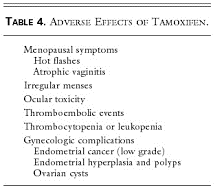A nurse is caring for a client who is taking lithium and reports starting a new exercise program. The nurse should assess the client for which of the following electrolyte imbalances?
Hypomagnesemia
Hypokalemia
Hypocalcemia
Hyponatremia
The Correct Answer is D
Choice A rationale:
Hypomagnesemia involves a deficiency of magnesium, and it's not directly related to starting an exercise program while taking lithium.
Choice B rationale:
Hypokalemia involves low levels of potassium, which might not be directly influenced by the client's exercise program.
Choice C rationale:
Hypocalcemia involves low levels of calcium, and exercise is not a primary factor affecting calcium balance.
Choice D rationale:
Hyponatremia involves low levels of sodium in the blood. Starting a new exercise program while taking lithium can lead to increased sweating, potentially causing a loss of sodium. Lithium itself can also impact sodium levels. Monitoring for hyponatremia is important due to its potential impact on lithium toxicity.
Nursing Test Bank
Naxlex Comprehensive Predictor Exams
Related Questions
Correct Answer is A
Explanation
Choice A rationale:
Hot flashes are a common adverse effect of tamoxifen, which is often used to treat hormone receptor-positive breast cancer.
Choice B rationale:
Constipation is not typically associated with tamoxifen.
Choice C rationale:
Urinary frequency is not typically associated with tamoxifen.
Choice D rationale:
Tinnitus is not a common adverse effect of tamoxifen.

Correct Answer is B
Explanation
Choice A rationale:
Morphine tablet is not likely to provide rapid relief within 1 hour for moderate to severe pain.
Choice B rationale:
Fentanyl transmucosa, such as a fentanyl lozenge or transmucosal patch, is a strong opioid analgesic that can provide rapid relief for breakthrough pain.
Choice C rationale:
A lidocaine patch is typically used for localized pain relief and might not provide the desired level of relief for systemic pain.
Choice D rationale:
Naloxone IV is an opioid antagonist used to reverse opioid overdose. It would not be appropriate to administer naloxone in this situation.
Whether you are a student looking to ace your exams or a practicing nurse seeking to enhance your expertise , our nursing education contents will empower you with the confidence and competence to make a difference in the lives of patients and become a respected leader in the healthcare field.
Visit Naxlex, invest in your future and unlock endless possibilities with our unparalleled nursing education contents today
Report Wrong Answer on the Current Question
Do you disagree with the answer? If yes, what is your expected answer? Explain.
Kindly be descriptive with the issue you are facing.
